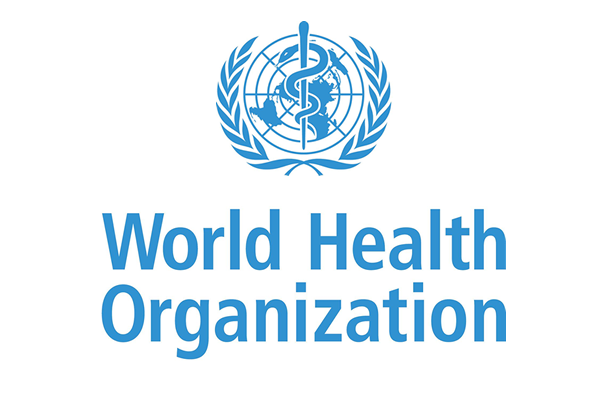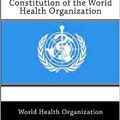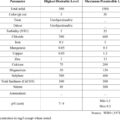The World Health Organization’s emblem or logo was selected by the first World Health Assembly, which met in Geneva on June 24, 1948. The first World Health Assembly was attended by delegations from all but two of WHO’s then 48 Member States. There were several observers: from nine non-Member States, military administrations, the United Nations, five agencies, and two health agencies that were in many respects precursors to WHO: the Pan American Sanitary Organization and the Office International d’Hygiene Publique.
The logo consists of the United Nations symbol surmounted by a staff with a snake coiling around it.
The staff with the snake has long been a symbol of medicine and the medical profession. It originates from the story of Asclepius, who was revered by the ancient Greeks as a god of healing and whose cult involved the use of snakes. Asclepius, incidentally, was so successful at saving lives that, the legend goes, Hades the god of the underworld complained about him to the supreme god Zeus who, fearing that the healer might make humans immortal, killed Asclepius with a thunderbolt.
The use of the WHO logo is restricted to institutions that have official collaborating status with WHO and only in conjunction with the work that they are undertaking for WHO. In addition to being an identifier of the Organization, the WHO emblem or logo implies endorsement by the WHO of the material it is used in conjunction with.
The use of the WHO emblem and logo is governed by a resolution of the First World Health Assembly (resolution WHA1.133), which states that “appropriate measures should be taken to prevent the use, without authorization by the Director-General, and in particular for commercial purposes by means of trade-marks or commercial labels, of the emblem, the official seal and the name of the World Health Organization, and of abbreviations of that name through the use of its initial letters”. WHO’s rules accepted by its 194 Member States do not allow the Organization’s name, emblem, or logo to be used to promote specific companies, products, or ideologies.
In most Member States of WHO, legislation has subsequently been introduced to protect the emblem, logo, and name of the Organization. The WHO emblem, logo, name, and abbreviation are also protected from being registered as trademarks under Article 6 of the Paris Convention for the Protection of Industrial Property.
Use of the WHO logo
The use of the WHO logo or emblem requires express written permission. WHO’s emblem is part of the Organization’s intellectual property and its use implies endorsement by WHO, it may only be used with express wrote permission.
The WHO emblem should not be used in association with advertising or promotional literature for products or services, with the names of proprietary products, or with the logos of commercial entities.
Use by other organizations on publications or websites
The WHO emblem or logo may only be used on publications (print, electronic, or web) with express permission, and only if WHO has been involved in preparing the text (or the work on which it is based), and only so long as the text is consistent with WHO’s policies and priorities.
History of WHO
The World Health Organization (WHO) is a specialized agency of the United Nations responsible for international public health. The WHO Constitution, which establishes the agency’s governing structure and principles, states its main objective as “the attainment by all peoples of the highest possible level of health.” It is headquartered in Geneva, Switzerland, with six semi-autonomous regional offices and 150 field offices worldwide.
The WHO was established by the constitution on 7 April 1948, which is commemorated as World Health Day. The WHO incorporated the assets, personnel, and duties of the League of Nations’ Health Organization and the Office International d’Hygiène Publique, including the International Classification of Diseases (ICD). Its work began in earnest in 1951 following a significant infusion of financial and technical resources.
The WHO’s broad mandate includes advocating for universal healthcare, monitoring public health risks, coordinating responses to health emergencies, and promoting human health and well being. It provides technical assistance to countries, sets international health standards and guidelines, and collects data on global health issues through the World Health Survey. Its flagship publication, the World Health Report, provides expert assessments of global health topics and health statistics on all nations. The WHO also serves as a forum for summits and discussions on health issues.
The WHO has played a leading role in several public health achievements, most notably the eradication of smallpox, the near-eradication of polio, and the development of an Ebola vaccine. Its current priorities include communicable diseases, particularly HIV/AIDS, Ebola, malaria, and tuberculosis; non-communicable diseases such as heart disease and cancer; healthy diet, nutrition, and food security; occupational health; and substance abuse.






